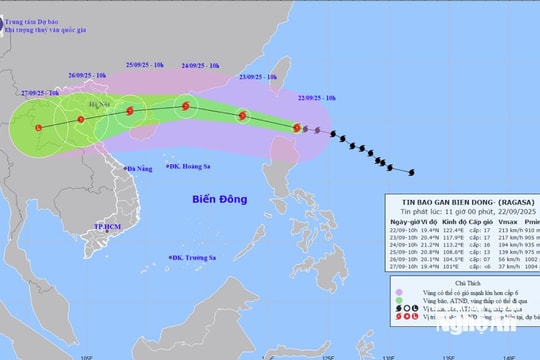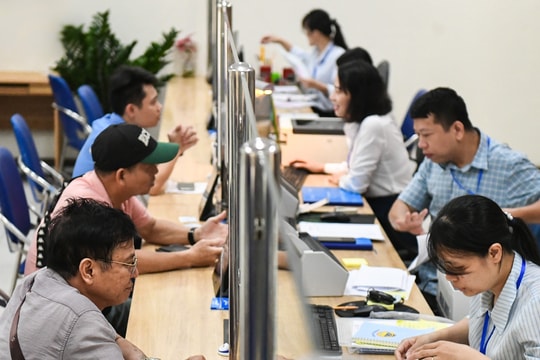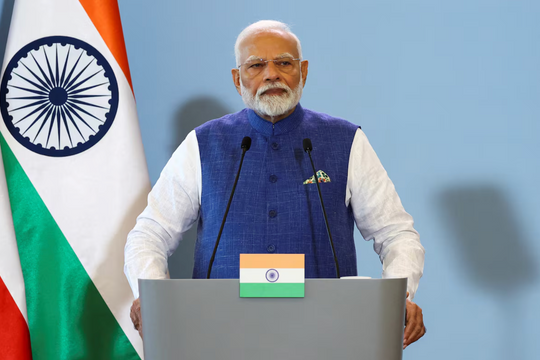Prime Minister Nguyen Xuan Phuc answers questions from Japanese press ahead of G7 Summit
At the invitation of Japanese Prime Minister Shinzo Abe, Prime Minister Nguyen Xuan Phuc will visit Japan and attend the expanded G7 Summit in Mie, Japan from May 26-28. On this occasion, Prime Minister Nguyen Xuan Phuc received and answered interviews from a number of major Japanese news agencies and newspapers. The Government Portal respectfully introduces the content of the interview.
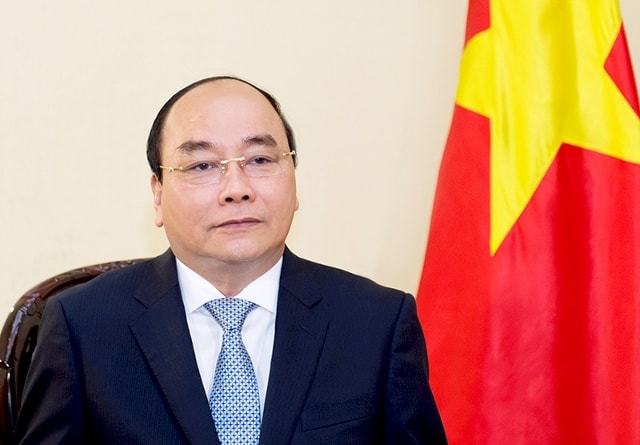 |
| Prime Minister Nguyen Xuan Phuc. Photo: VGP/Quang Hieu |
You will soon visit Japan and attend the expanded G7 Summit in Mie, Japan. What are your hopes for this Summit and could you please tell us the main topics you will discuss with the Japanese Prime Minister during the trip?
Prime Minister Nguyen Xuan Phuc: At the invitation of Mr. Shinzo Abe, Prime Minister of Japan, I will attend the expanded G7 Summit in Japan and will have bilateral talks with Prime Minister Abe. This is my first visit to Japan as Prime Minister of Vietnam. I am very pleased that the visit takes place in the context of the "Extensive Strategic Partnership for Peace and Prosperity in Asia" between Vietnam and Japan continuing to develop very well.
We welcome and appreciate Japan and Prime Minister Shinzo Abe personally for their great efforts in building the Agenda and organizing the expanded G7 Summit in line with the common concerns of the world and the region, especially in the context of slowing world economic growth, geopolitical tensions and increasingly fierce non-traditional security challenges.
Vietnam hopes that at this Summit, participating countries will have a voice and take practical actions to actively contribute to strengthening the peaceful and stable environment and solving common global and regional issues, especially sustainable development goals, infrastructure construction, natural disaster prevention, climate change response, anti-terrorism, food security, water resources, maritime, aviation, etc. Attending the G7 Summit for the first time, Vietnam will actively and responsibly contribute to discussing the above issues.
During the visit, I will discuss with Prime Minister Shinzo Abe major orientations and specific measures to promote the cooperation between the two countries to develop more strongly in various fields, focusing on enhancing political trust, promoting cooperation in economics, trade, investment, ODA, supporting industry, agriculture, disaster prevention, climate change response, health care, education and training, science, technology, etc.
Vietnam affirms its consistent foreign policy towards Japan. I hope that the results of the trip will create a strong driving force to further deepen and become more effective the Vietnam-Japan relationship, for the benefit of the people of the two countries, for peace, stability, cooperation and development in the region and the world.
The Vietnamese Government attaches great importance to its relationship with Japan. As the new Prime Minister, how do you assess the Vietnam-Japan relationship so far and how do you want to continue to develop the cooperative relationship with Japan in the future? Could you please tell us your views on ODA capital from Japan?
Prime Minister Nguyen Xuan Phuc: Since the establishment of diplomatic relations 43 years ago, the Vietnam-Japan relationship has made great strides, developed comprehensively and deeply. Not only are they extensive strategic partners, Vietnam and Japan are also trusted friends, with similar cultures, compatible interests and economic support, and have actively contributed to strengthening peace, stability and development in the region. It can be said that the Vietnam-Japan relationship is in its best development period ever.
Japan is Vietnam's leading economic partner. Two-way trade turnover in 2015 reached over 28 billion USD. Currently, there are about 2,000 Japanese enterprises investing in Vietnam, including the presence of most of Japan's leading corporations, with over 3,000 projects and a total registered capital of 39 billion USD. The two countries are jointly implementing many large-scale projects in the fields of infrastructure and energy in Vietnam. Cooperation in education, science and technology, culture and people-to-people exchange is also very active. In 2015, nearly 700,000 Japanese people visited Vietnam and nearly 200,000 Vietnamese people visited Japan. This remarkable development is thanks to the strategic vision of the leaders and the great support of the people of the two countries, and is also in line with the current development trend in the world, which is peace, friendship, cooperation, and mutual prosperity.
Vietnam affirms its consistent foreign policy and guidelines with Japan. We wish to continue to strengthen cooperation and deepen the extensive strategic partnership between Vietnam and Japan for the benefit of the people of the two countries, making practical contributions to consolidating peace, friendship and cooperation in the region. Focusing on the following major directions:
Firstly, implementing the Action Plan for 6 industries in Vietnam's Industrialization Strategy within the framework of Vietnam-Japan cooperation towards 2020, vision 2030, in which Japan is expected to actively cooperate in developing Vietnam's supporting industry.
Second, promote economic connectivity through enhanced cooperation in the fields of trade and investment to achieve the goal of doubling trade and investment turnover by 2020 as stated in the 2014 Joint Statement, and effectively implement the Vietnam-Japan Economic Partnership Agreement (VJEPA).
The establishment of the ASEAN Community in 2015 as well as Vietnam and Japan's participation in building regional economic links such as the Trans-Pacific Partnership (TPP) and the Regional Comprehensive Economic Partnership (RCEP) will open up new opportunities for businesses of the two countries to strengthen investment and business cooperation. Vietnam highly appreciates and hopes that Japanese companies will increase investment and business in Vietnam, including new forms such as public-private partnerships (PPP).
Third, Vietnam hopes that Japan will maintain ODA at a high level, especially in the fields of infrastructure construction, human resource development, natural disaster prevention, response to climate change and environmental issues, management capacity enhancement, support for effective implementation of large-scale projects, economic restructuring and sustainable growth. We welcome Japan's implementation of the "Partnership for Quality Infrastructure" Program in Asia, an initiative of Prime Minister Shinzo Abe, and hope that Vietnam will become Japan's priority partner in this program.
Fourth, further strengthen cooperation in the fields of agriculture and science and technology. These are areas in which both countries have the need and potential to develop, creating conditions for technology transfer and training of high-quality human resources for sustainable development.
Fifth, strengthen cooperation in the field of disaster response and climate change. This is important for Vietnam - one of the countries most severely affected by climate change and facing serious drought and saltwater intrusion in the South Central provinces, the Central Highlands and the Mekong Delta.
With the determination to comprehensively innovate and integrate into the international community in a proactive, positive and extensive manner, the Government and people of Vietnam always strive to build a friendly, peaceful and stable Vietnam with a dynamically developing economy and strong commitments to improve the investment and business environment, enhance competitiveness in line with international standards and commitments. Vietnam is a sincere friend, a reliable partner, a responsible member of the international community, including Japan - a deep strategic partner of Vietnam.
This year, Vietnam will celebrate 30 years of implementing the Doi Moi policy. Prime Minister, could you please share your opinion on this? Can we expect Vietnam to have a similar policy in the future? In the next 5 years, what issue do you want to focus on the most? And to do that, what specific policies will you implement?
Prime Minister Nguyen Xuan Phuc: As correspondents in Vietnam, you can all feel the strong changes in our country. Thirty years of renovation is an important historical period in the development process of Vietnam. Through profound and comprehensive reform measures, the renovation process has brought our country great, comprehensive, and historically significant development achievements, which have been supported by the people and highly appreciated by international friends. Vietnam has undergone remarkable changes, in which the biggest change is the current position and strength of Vietnam.
From a poor, underdeveloped country, Vietnam has joined the group of middle-income developing countries, becoming a dynamic economy, entering a new stage of development. Vietnam has achieved an impressive growth rate, averaging about 7% in the period 1991-2015. Per capita income has increased rapidly, 11.5 times after more than 20 years (reaching over 2,100 USD in 2015 compared to 200 USD in the early 1990s). The scale of the economy has increased rapidly and the economic structure has initially shifted towards modernity. Deep international integration at many levels, diverse in forms, step by step following international principles and standards. Culture and society have developed positively. Politics and society are stable. National defense and security have been strengthened; independence and sovereignty have been maintained. Foreign affairs and international integration have achieved many results. Vietnam's position and prestige in the international arena are increasingly enhanced.
The above achievements are an important premise for us to continue to comprehensively and synchronously promote the innovation process in the coming time, soon turning Vietnam into a basically modern industrialized country, narrowing the development gap with other countries in the region and the world.
In the coming time, although we have to face many difficulties and challenges, we will continue to comprehensively promote the innovation process in the context of increasingly deep international integration, maximize potential and advantages, and successfully build a Vietnam with rich people, strong country, democracy, fairness, and civilization.
The Government and the Prime Minister agreed to act with the highest determination, resolutely innovate methods and improve the effectiveness of leadership, management, direction and administration; build an honest, creative and developing Government, close to and serving the people; focus on perfecting institutions and policies, ensuring fairness and transparency; strengthen the fight against corruption and waste; promote administrative procedure reform, improve the investment and business environment, and create all favorable conditions for people and businesses.
According to Chinhphu.vn
| RELATED NEWS |
|---|


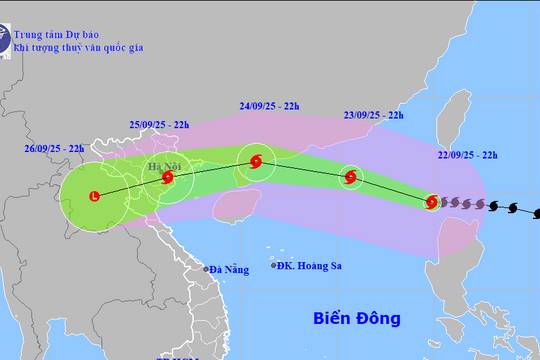
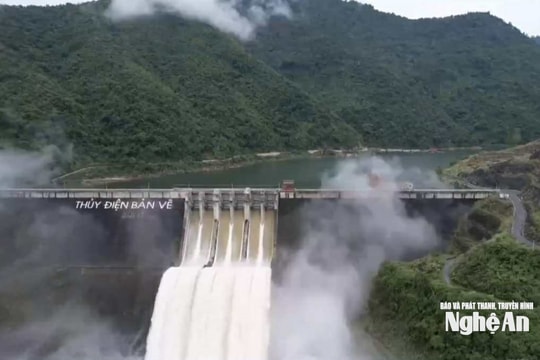
.jpg)
